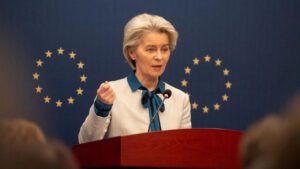Under the leadership of the Communist Party of China (CPC), the government of the People’s Republic of China actively guides both the public and private sectors toward meticulously formulated development goals across a wide spectrum of fields—from industry to tourism, from technology to education, from ecological urban planning to the preservation and revitalization of cultural heritage. Each large-scale project approved within the scope of these development objectives is carried out by the most suitable local or provincial-level legal entities, under the strict supervision of local governments. What distinguishes this general operation is the continuous monitoring of the local social fabric that might be indirectly affected by the projects and the systematic inclusion of local populations in the benefits these developments bring.
The seriousness with which the proposed goals are pursued is the key reason for the remarkable outcomes achieved. Additionally, considerable effort is made to communicate these results to the public. Thanks to the kind invitation of the Guizhou Provincial News Office, we had the opportunity to witness firsthand the outcomes of several comprehensive agricultural and tourism projects.

About Guizhou
Guizhou is a province in southwest China with a population of approximately 38.6 million. While the majority of the population (60%) consists of Han Chinese, Guizhou is one of the rare regions where all 56 ethnic groups in China are represented. Seventeen of these, including the Miao, Dong, Buyi, Yi, and Tujia, live here with their own distinct cultural ecosystems.
Administratively, Guizhou is divided into nine regions: six prefecture-level cities (Guiyang, Liupanshui, Zunyi, Anshun, Bijie, and Tongren) and three autonomous prefectures where ethnic minorities are concentrated. Guiyang, the provincial capital, serves as the political, economic, and cultural center of Guizhou.
Covering an area of approximately 176,000 km², Guizhou has entered a period of rapid development in recent years. Agriculture, mining, and tourism are among the province’s key economic sectors. Known for its traditional villages and natural parks, Guizhou has also made significant progress in infrastructure and transportation through government-led regional development projects.
Guiding County: Redrawing the Map of Ecological Economy through Green Development
In recent years, Guiding County has taken decisive steps to implement a new model of development that combines forest conservation with the growth of the forestry industry. This approach has put the county on a path of high-quality development, reflecting the philosophy that “green mountains and clear waters are invaluable assets”—a concept first articulated by President Xi Jinping (then Party Secretary of Zhejiang Province) in 2005 in Yucun Village. This idea has since become one of the core principles of China’s drive to build an ecological civilization.
As part of its commitment to ecological civilization, Guiding County has adopted reforestation as a key policy. The county’s total forested area now spans 109,813 hectares. Four nature reserves, including the state-owned Ganxi Forest Park and the Bailonghe National Wetland Park, together cover 13,702 hectares. Thanks to ecological restoration projects aimed at rehabilitating karst landscapes and preserving water resources in the Wujiang River basin, significant progress has been made in re-greening the land. As of 2024, 2,000 hectares of degraded forest have been restored, increasing the county’s forest coverage rate from 50.2% in 2011 to 66.49%.
To ensure the security of forest resources, Guiding County has established a robust protection and supervision mechanism. A team of 998 professional personnel regularly monitors and inspects the forests. In addition, special operations have been launched to combat illegal logging and pasture destruction. Since the beginning of 2025, ten cases of illegal forest activity have been investigated and resolved.

A notable example within this ecological civilization effort is the state-owned Ganxi Forest Park. Since 2011, its managed area has expanded from 451 hectares to 926 hectares, while its forest coverage rate has risen from 86% to 91.06%. The park has received several national honors, including “National Ecological Civilization Education Base” and “One of China’s Top Ten State Forest Parks.” It is utilized for various agricultural and tourism research programs. Each year, the park hosts more than 200 institutional delegations and executives from across China and serves as an educational site for over 100 schools, making it an important hub for ecology-based education and public awareness.
The under-forest economy in the region is also experiencing dynamic growth. As of June 2025, the total land area utilized in this sector has reached 24,300 hectares, generating an economic output of 629 million yuan. These developments have significantly boosted rural development efforts in the county and vividly demonstrate the contribution of ecology-based production activities to local prosperity.

The strategic orientation of capital by the state toward projects that generate social benefit is a critical step in overcoming many of the social and economic crises we face in the modern era. In the next part of this series, we will explore more examples from Guizhou Province where awe-inspiring results have been achieved through the implementation of the ecological civilization approach.
Keywords
Guizhou, Guiding County, ecological civilization, green development China, reforestation, Ganxi Forest Park, rural development China, eco-tourism, Xi Jinping green quote, southwest China, forest economy, Wujiang River basin, ethnic minorities China, sustainable forestry, wetland parks, under-forest economy, ecological restoration, environmental policy China, ecological urban planning
Meta Description:
Explore Guizhou’s ecological civilization approach through green development, reforestation, cultural diversity, and forest economy. Discover how Guiding County leads sustainable change in southwest China.
Abroad Africa AI Beijing Belt & Road BLCU BRICS China chinese CPC CSC Culture Economy education EU Guizhou Kültür Langauge movie Multipolarity Russia scholarship science Shanghai Sino Sino Turkish Sino Turkish Sino Turkish Sino Turkish Sino Turkish Studies Sino Turkish Studies Sino Turkish Studies Sino Turkish Studies space Syria Taiwan Tariff trump Turkiye Türkiye University USA Xinjiang ZJUT Çin





